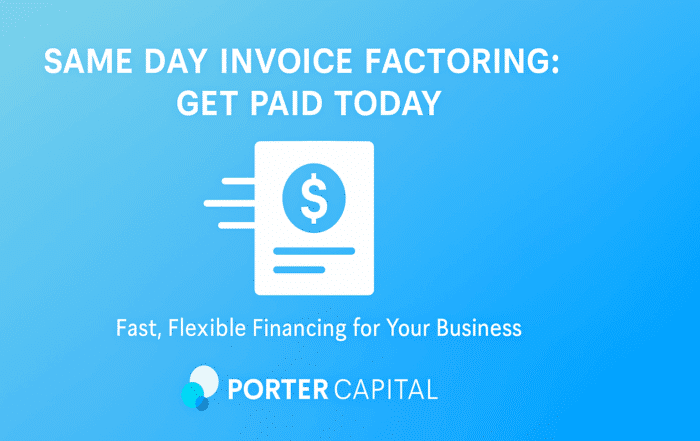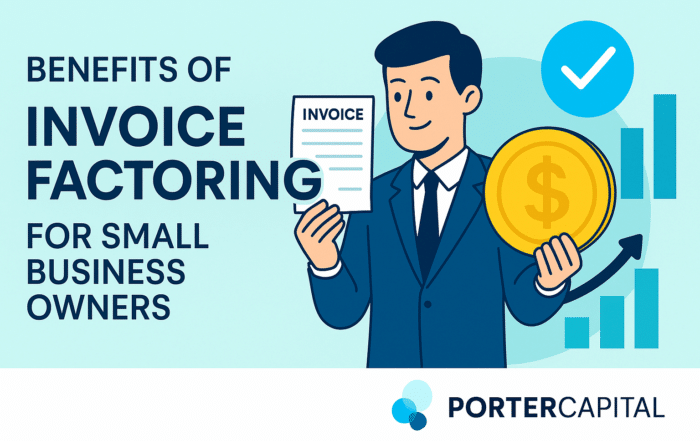Reading Time: 3.3 minutes
Last updated: March 21, 2025
All businesses can run into cash flow issues and look for financing options to help access the working capital they need. Traditional small business loans are not always an option. So, in these instances, businesses turn to invoice factoring or business credit cards for business funding.
Both options offer different benefits and challenges. It’s important to choose the right choice for your business to continue to grow and succeed. Is invoice factoring or a credit card best for your small business?
Invoice factoring
Invoice factoring, also known as invoice financing and accounts receivable factoring, is great for businesses working in the B2B space with slow-paying customers. It works when a business sells its open, unpaid invoices to a factoring company for a discount. The factor then advances a high percent of the invoice amount within 24 hours and collects payment from the business’s customer at the end of the payment term.
Unlike a line of credit from a traditional lender, a business incurs no debt with invoice factoring, and there is no interest to repay. You sell your invoices, receive a cash advance for a small factoring fee (a percent from the total invoice amount), and the customer pays the factor.
Businesses with little to no credit can benefit from using invoice factoring. A factor bases approvals on the customer’s credit score, not the business’s or the owner’s score. A factor credit checks customers before approving them to ensure they’ll get paid. Some factors offer back-office assistance and are responsible for collecting if a customer is late in paying.
Small Business Credit Cards
The account holder for a small business credit card is the business itself, not the owner. A business can register its employees for individual card use. Like a regular credit card, statements are monthly, and interest will accrue each month if there is a balance.
A business must have a good credit score to qualify for a business cred card. In some instances, approval is tied to the business owner’s personal credit. A business with a high credit score may qualify for better interest rates and higher credit limits. There is typically an annual fee and balance transfer fees associated with small business credit cards. Some cards offer interest-free deals for the first few months. After that, an APR will kick in.
A credit card benefit for some businesses is receiving points, miles, cash back, or other rewards for using the card. B2B and B2C companies can apply for a credit card.
Invoice factoring vs. small business credit card
Invoice factoring
- No cap on funding.
- Approval is based on the customer’s credit.
- No new debt is incurred.
- Small monthly fees.
- No annual fee.
- Back-office assistance is offered.
- No perks like cash back, miles, rewards, etc.
Small business credit card
- Credit limits are subject to approved credit score.
- Approval is based on the business’s or personal credit score.
- Credit card debt must be repaid.
- Higher APR % for carried over balances.
- Credit cards typically have annual fees.
- No back-office support.
Rewards are offered when the credit card is used.
What type of business funding is best for you?
Invoice factoring is best for businesses operating in the B2B space and work with slow-paying customers. It also benefits companies that need help accessing their working capital or their sales volume fluctuates due to products, seasons, or additional factors. Businesses receive access to cash in 24-hours, add no additional debt, and it’s interest-free.
Businesses that regularly collect from customers, have consistent sales volumes, and a good credit score will qualify for a small business credit card. Companies avoid interested charges then they pay the card off monthly; however, if there is a remaining balance, APR will be added.
Porter Capital is a leading provider of invoice factoring services. In addition to invoice factoring, we offer asset-based lending and business credit lines. If you need access to your business’s cash flow and operate in the B2B space, contact us today for a free quote.



